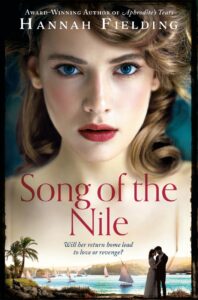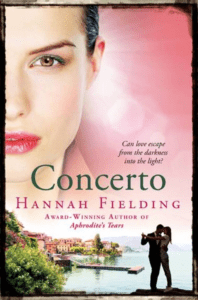Is the male point of view important in a romance novel?
Is the male point of view important in a romance novel?
Is the male point of view important in a romance novel?
-
Hannah
-
Hannah

As I’m sure you can imagine, I have a read a great number of romance books in my life. One can’t even think of writing in a genre without having read extensively in that genre, I always thought – and I knew from a young age that I wanted to become a romance author.
I read everything from classic romantic literature to the kind of paperback you pick up at the airport to distract you on a long flight. Some books I enjoyed and became well-thumbed novels on my book shelves at home; Jane Eyre springs at once to mind. Others were not keepers, but I studied them with great interest, keen to learn the conventions of the romance genre and to work out what my own approach and style would be when I set pen to paper.
I noticed early on in my reading that I was quick to consider the author’s approach to perspective. By this I mean, is the entire story told from the point of view of the protagonist, the heroine – so we see everything through her eyes? Or is there a shift sometimes to other characters, most interestingly the hero; are we able to perceive the story from his perspective as well?
I have mentioned here that Jane Eyre was an early favourite as I explored romance novels, but I did have one frustration with it from the outset: Jane herself is the narrator, so we are limited completely to her perceptions and understanding of events. That creates a wonderful intimacy between the reader and Jane – she even speaks directly to us, as in the famous ‘Reader, I married him’ – but it keeps Edward Rochester at such a distance. Yes, this helps to maintain his air of mystery, but it leaves the reader very much in the dark.
Now, in a television or film adaptation of Jane Eyre, we would not expect the camera to follow only Jane; we would watch scenes in which Rochester was the focus. In that way, we would come to see his perspective. But not so in the novel.
The more romances I read, the more I came to see that I was very much interested in both sides of the story, not only the heroine’s. Here, then, is why my romance novels feature the male perspective:
Telling a more rounded story
If a story is told from only one perspective, then it is very much only one version of the truth at that moment in time. There is doubtlessly so much more going on of which the heroine is not aware. Is her ‘truth’ in fact a reflection of reality?
Perhaps the heroine has blind spots. Perhaps her flaws mean she is not seeing things as they are but as she expects them to be. As was explored in another classic romance book, Pride and Prejudice, it is easy for a person to make misconceptions – to see reality coloured by their own mood and thoughts and feelings and experiences and influences and background.
Thinking of how Aida had thrown his offer of marriage back in his face, Phares winced inwardly. He hadn’t been enough for her, it seemed. Incensed, all his pent-up desire had boiled over. Phares knew that he’d been conceited and totally selfish. If only he had been reasonable in the way he had spoken to her they wouldn’t have quarrelled, and there might still be some hope for them to have a future together.
As it was, he couldn’t envisage them ever getting together now. He had lost her. Lost the wild, free spirit he admired despite himself. Her mocking words reverberated in his head. ‘I remember you exactly as you always were, Phares Pharaony. Arrogant, haughty and narrow-minded.’
He picked up another stone and hurled it with angry force into the water. He should have handled her more carefully but could she not see that he was trying to protect her?
– Song of the Nile
Seeing the heroine through the hero’s eyes
When the narrator is attached to the heroine, either in the first or the third person, the reader gets a good sense of her inner world, of her thoughts and feelings, but we have no other frame of reference. We can see how she thinks other people view her, but that’s simply her perception. It is not the whole truth.
Bring in the hero’s point of view, and not only do we have a window into his world, but we see the heroine from several steps back – from the outside. We know how she comes across: whether her vulnerability shows despite her attempts to appear confident; whether the desire she thinks she is concealing is actually sensed by the hero.
Memories flooded back of that night of madness, as he knew they would: those shadows that walked beside him, mocking shadows of the past. Damian had been travelling for so many months on his own, before returning home to Helios and to a life of responsibility. The island of Aegina was where he had sailed to spend a few hours before moving on the next morning to Athens; and there she was, looking like the water nymph, Undine, sitting on a rock with the sea at her feet, her ashen silk hair shining under the silver light like spun moonbeams. Her smile had revealed a deep dent at the left side of her soft, pink mouth that made him lose his senses. She was lovely and desirable, a warm-blooded, intoxicating woman, full of fire and passion. Almost like wine she had gone to his head at first glance and, like wine, he had become drunk on her.
When his mouth had touched those fresh soft lips, their kiss had blotted out everything that had gone before, everything that could happen in the future; there had been no time or place or boundary to the fullness of the moment. Damian had felt Oriel trembling in his arms like a frightened fawn, afraid of some unknown power, and he had sensed her inexperience. Yet, by looking into those enormous green eyes that reflected the depths of the sea, he had also known that she was as enthralled by the chemistry between them as he was.
– Aphrodite’s Tears
Writing heroes who feel
What draws me to the romance genre is its focus on emotions, on passions and dreams, on vulnerabilities and courage, on forging connections. All of this exists for both parties in the romance, not only the heroine. The hero has feelings too! He wrestles with himself, with his identity and his purpose; he must contend with every emotion from desire to fear. I do not want to write two-dimensional heroes, knights in shining armour who are eternally tough and battle-ready; I want to write men – I want to write of humanity.
Umberto hadn’t had a woman since his accident and tonight the ache was overwhelming. It shocked and alarmed him a little because it was a different ache, a different need to the one he felt during the lonely days and nights spent in darkness. It was a desire prompted by Caterina’s presence under his roof, conjuring up confusing emotions that tortured him, body and soul. It seemed that he wanted her more than ever, with a scorching passion that he couldn’t remember having felt before, even on that night at Villa Rossini.
The woman she was now was as intoxicating as the teenager she had been then. Her voice, her smell, her touch still had the power to move him as no other woman had. Umberto’s heart squeezed and he shook his head, a helpless laugh escaping him – fate was cruel sometimes.
– Concerto
I want, ultimately, to write of love. To me, it’s a natural choice as the storyteller to visit both perspectives, because then not only am I able to show the reader the heroine’s love, but I can also explore the hero’s love; I can explore more deeply what it is to love and to be loved.
Therefore, when I reach a point in my writing where I can step into the hero’s shoes, I am especially ‘in the flow’. This, I feel, is my way of writing, of telling a story, and I find it deeply fulfilling. I hope that you, too, may enjoy his story as much as her story.
Picture credit: Kiselev Andrey Valerevich/Shutterstock


